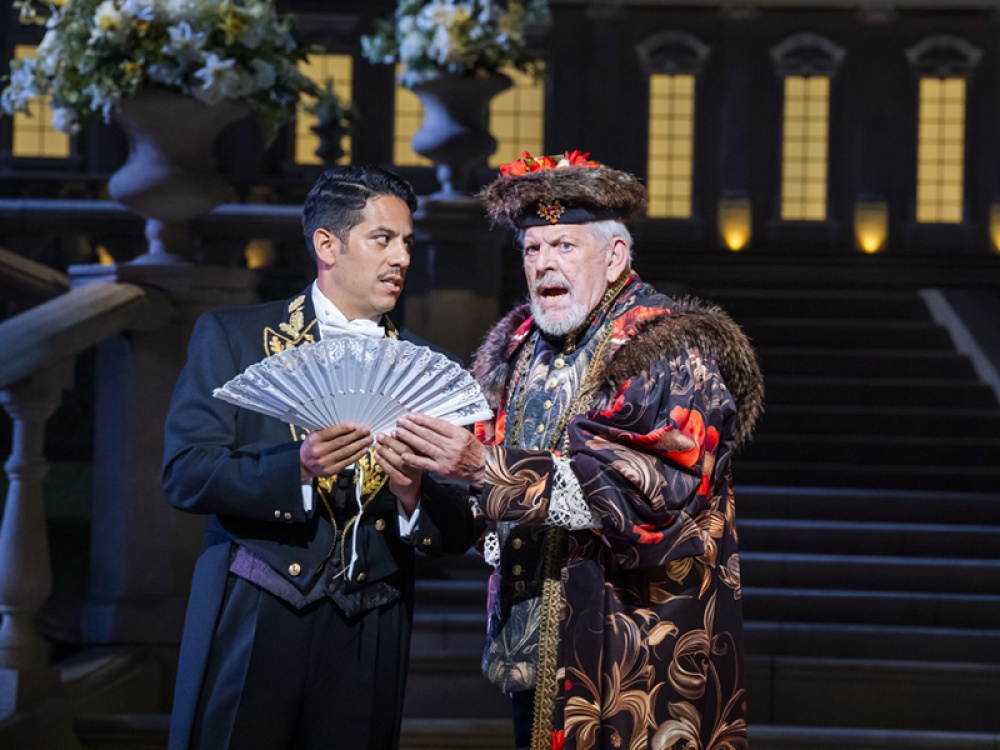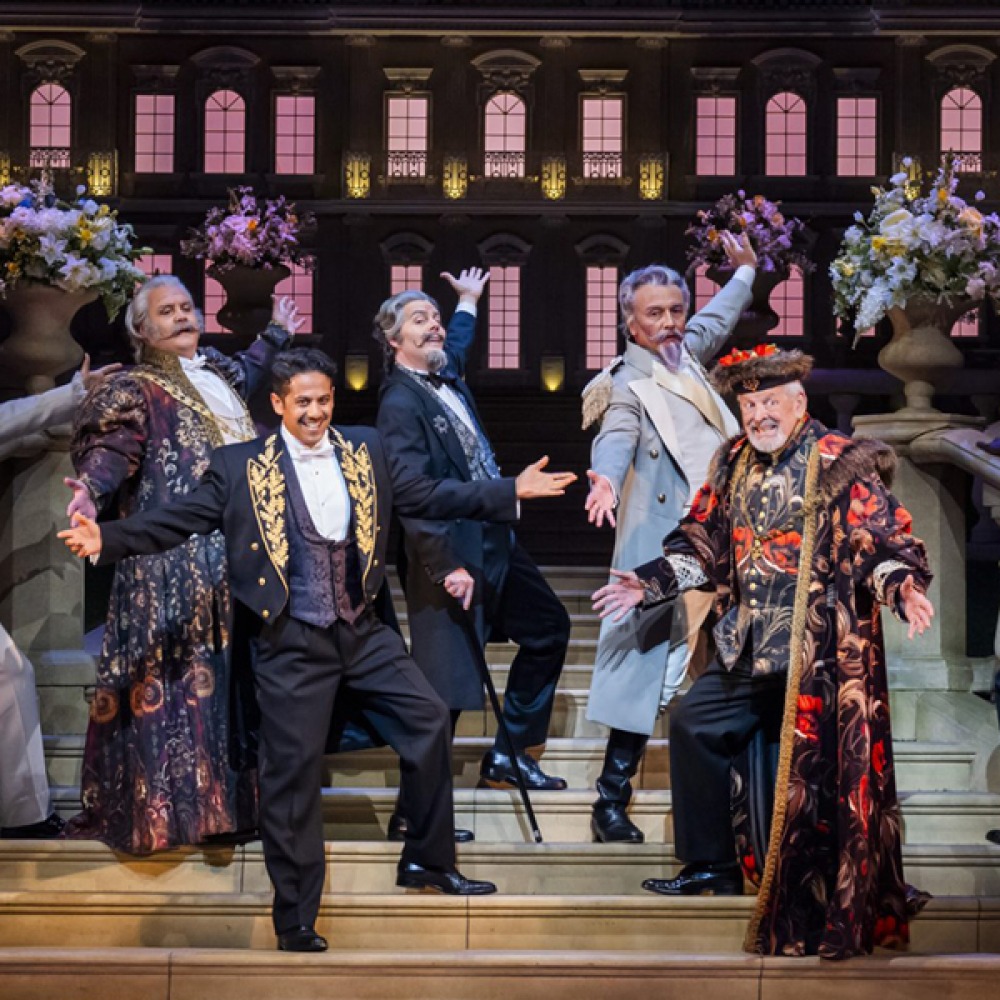Meet Thomas Allen, the World-Famous Opera Singer from Seaham

Thomas Allen has enjoyed an incredible career as one of the world's most celebrated operatic baritones. This summer he has come out of retirement to grace the stage once more at Glyndebourne
I wonder how much of a connection he still feels to the North East. ‘I’m sitting in a workshop in my shed in the garden,’ he says, ‘and I’m staring at two photographs of a very stormy sea at Seaham Harbour breaking over a lighthouse and the other one is of Durham Cathedral, so it never goes away.’
He admits that there were points in his career where a greater distance crept in (both geographically and psychologically), but becoming Chancellor of Durham University in 2012 renewed his connection to the area he grew up in. ‘It made me feel very glad to be back home, and very proud to be a North Easterner,’ says Thomas.
One thing that has never left him is his accent. ‘I love lapsing into my own dialect instead of trying to make myself fully understood by people in the South East who’ve never travelled far enough,’ he laughs. He even wonders if it was an advantage in a job that required him to perform in a myriad of languages. ‘I think being bilingual in English – received pronunciation and also my home dialect – makes me very attuned to other languages [and] other accents… but that doesn’t actually help with the language – you just have to do the study!’

Nevertheless, dialects from closer to home have not been absent from his career. Thomas’s talent was first discovered by his physics teacher, Dennis Weatherley, himself a keen singer of Northumbrian music, and a few years ago Thomas recorded ‘Songs of Northumbria’ alongside Sheila Armstrong, the famed soprano from Ashington. ‘I sang them most recently at a concert that the now King asked me to do at Buckingham Palace for “a few friends”,’ he laughs, before telling me that these ‘friends’ turned out to be international royalty, who he delighted with a rendition of When the Boat Comes In.
Lee Hall has cited Thomas’ life as the inspiration for his iconic film, Billy Elliot. Thomas seems amused by the connection but tells me that – although he has been known to perform in a tutu – his ambitions were always encouraged. ‘If I had been a dancer, I’m sure I would have got tremendous support from my family,’ he says.
‘Although I didn’t hear opera at home, I heard a lot of music, and it was undoubtedly an influence on my life,’ he continues. Instead of opera, Thomas says that his childhood was filled with performances of popular musical from the local amateur dramatics society and pub songs sung around the piano. ‘Opera singers weren’t something that you came across in everyday life. Lots of miners, but not many opera singers,’ he laughs.
In an age where dramatic performances are lauded for their realism (or bemoaned for mumbling) I wonder how he navigates the melodrama and spectacle of opera? ‘Theatre is when people come together and talk to one another on stage, we walk up to somebody and we shout loud music in their ear,’ he laughs. ‘It’s an unusual form of communication but at its best it can have a hugely emotional impact,’ he continues. ‘The combination of music and a great composer expressing how he interprets an emotion at any particular moment can be shattering, and I’ve spent my life trying to make logic of all of that: trying to match the music of what I’m singing to whatever it is I’m feeling as a person, as a human being, as a character on stage,’ he says. ‘Sometimes those things come together – sometimes the role is the right one.
As an example, he points to the role of Beckmesser in Wagener’s Die Meistersinger. ‘The character became someone that I understood,’ he says. ‘He wasn’t a craftsman; he was a man who didn’t really fit into that particular society [because] he didn’t have calluses on his hands from hard work – he had ink stains.’
I could speculate about why this role in particular stands out to him, but that is not to say that opera isn’t a physical undertaking. ‘You try not to show the effort involved,’ he says, ‘but lung capacity, strength in the abdomen and everything else [is important]. Then it’s all depending on these two vocal folds in your throat about the size of an old six penny bit, and that’s your life.’
He admits that his initial retirement from the daily pressure of performing came as something of a relief – so what sparked the return? Thomas tells me that he had already played the comic role of Baron Mirko Zeta in Lehár’s The Merry Widow twice before in New York, and simply thought ‘“Why not one last time?”’
Nevertheless, his feelings returning to Glyndebourne are unavoidably complex. ‘It’s very nostalgic for me to go back to Glyndebourne and to remember meeting Sheila [Armstrong] from Ashington and feeling a little bit less homesick,’ he says.
‘Stepping on the stage at Glyndebourne was my first professional engagement really, I met lots of wonderful colleagues there from all over the world and it was a guide as to what the future might hold.
‘Going back there now, it’s different. It’s still lively - there are still lovely things about it – but it’s full of ghosts.’









